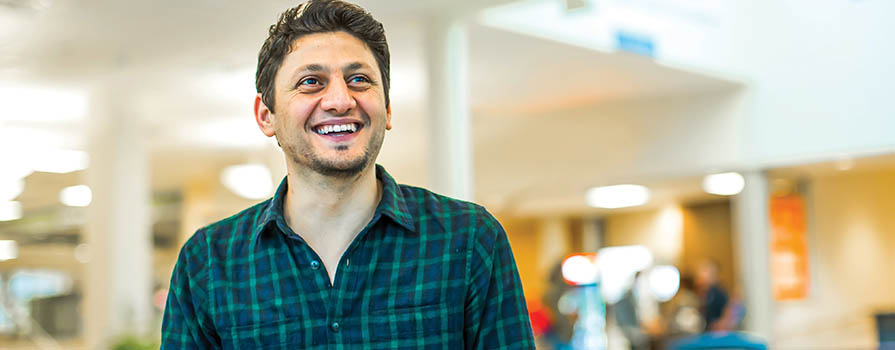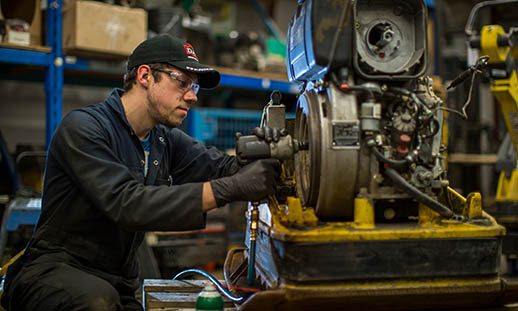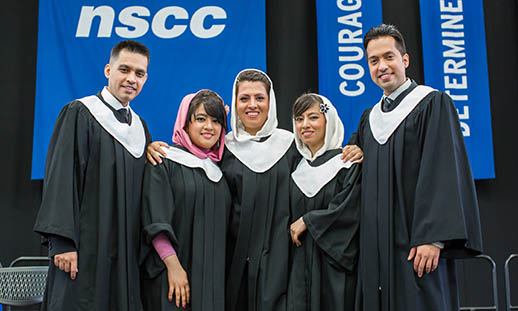Fleeing Syria

As his town was bombed, Syrian-born Mohammad al Masalma took to the streets–leading a group of volunteers equipped with blankets, food, first aid supplies, offers of shelter and other essentials–in an attempt to help ease the suffering of his community.
“We woke up one morning and saw people on the sidewalks with their bags, some clothes and children crying,” says Mohammad. “The regime had bombed their area. They had nowhere to go.”
Spies throughout the city saw the volunteer aid group’s efforts as a slight against the regime and issued a stop order.
“They would do random sweeps throughout the city looking for rebels,” says Mohammad. “One day, the soldiers stormed into our house with guns, screaming as my brothers and I sat in our study room. We are university students, with laptops and cellular phones, a TV and a desktop. When they looked around, they saw us as a terrorist cell and arrested us.”
A required conversation at a security checkpoint then they were told would only require an hour of their time, turned into a month-long prison stay where Mohammad says he and his brother were tortured for information. With no information to share, they were released.
It was then that Mohammad discovered that he shared a first and last name with 60,000 other men in his country. “Before they let me out, the head of the security department asked me to his office and said I had two options: either change my name, or leave the country. Of course, he didn’t say it nicely.”
With a plea from his mother, who was fearful that the next time her son was arrested he wouldn’t be released, Mohammad, along with his family, left for nearby Jordan as refugees.
I always have people asking me ‘after all you’ve been through, how do you still laugh and look at life at this angle?’ I guess, that’s me. I always like to look at the positive side. There’s no use in sitting around and thinking ‘life did this to me, and this to me’ it won’t help with anything.
Coming to Canada
For nearly three years, Mohammad drew on his degree from Damascus University in English Literature to provide translation services–one of only a handful of jobs he was legally approved to hold as a refugee in Jordan–before he heard about the program that would help him start a new life in Canada.
“I saw an ad on Facebook for free IELTS (International English Language Testing Service), and signed up right away,” says Mohammad. “On the first day, the teacher had us ask each other about what we would like to do in the future. Every time, my classmates answered ‘next year, I’ll be in Canada!’”
It was then that al Masalma learned about the Student Refugee Program from World University Service of Canada (WUSC)–a program designed to allow refugees to continue their education in Canada while also becoming citizens.
“All three of us applied to WUSC for the program—me, my sister, Lubna, and my brother, Mihyar–and all three were accepted,” say Mohammad. While his sister stayed in Jordan to pursue a Pharmacy degree, his brother and he prepared to come to Canada. As the brothers started their journey, neither knew what or where they would be studying.
“The reason WUSC doesn’t tell the students that ‘you got in this university or this program’ is because they don’t want to get our hopes up,” says Mohammad. “As refugees, they might not be accepted through the Embassy, the security checks. So many things. Then all your dreams will be crushed.”
As it was, Mohammad was enrolled in Tourism Management at NSCC Akerley Campus, while his brother, Mihyar, was enrolled in Computer Science at Dalhousie University.
Working at NSCC
“I’m now a local committee member of WUSC within NSCC. I’m an international student ambassador and I’m working with NSCC International,” says Mohammad whose first task was to begin the process of applying to bring another refugee student to NSCC. “I’ve always believed in paying it forward, so I’d like to pay it forward for another student through the application.”
Ashley Pinsent-Tobin, NSCC Manager, International Learning (Inbound), explains that since the program is new at the College, Mohammad has been vital to growing and strengthening it by providing insights into the needs of international students. “Mohammad has been very gracious and very flexible as we’ve been trying to figure things out. I’m so grateful that he’s someone who is open and honest and willing to help make this a better experience.”
Mohammad says that the hardest part of the whole process has been being away from his family—especially his mother—and he’s hoping one day they will all be reunited in Canada.
Fast Fact
The Student Refugee Program (SRP) combines resettlement with opportunities for higher education. The program supports over 160 refugee students per year through active partnerships with over 75 Canadian campuses. Since 1978, WUSC has empowered over 1,500 young refugees from 37 countries of origin to continue their education in safe and supportive environments in Canada.
Related Stories
 Music to his ears
Music to his ears
NSCC grad Tyler Surette found a career as a diesel mechanic that combines his passion and interests.


